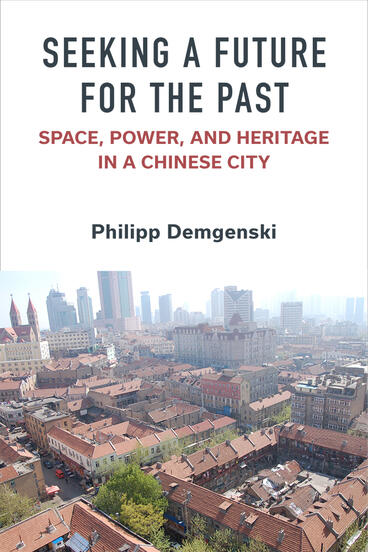Seeking a Future for the Past
Space, Power, and Heritage in a Chinese City
An ethnography that illuminates the political economy of urbanization in contemporary China
Description
Seeking a Future for the Past: Space, Power, and Heritage in a Chinese City examines the complexities and changing sociopolitical dynamics of urban renewal in contemporary China. Drawing on ten years of ethnographic fieldwork in the northeastern Chinese city of Qingdao, the book tells the story of the slow, fragmented, and contentious transformation of Dabaodao—an area in the city’s former colonial center—from a place of common homes occupied by the urban poor into a showcase of architectural heritage and site for tourism and consumption. The ethnography provides a nuanced account of the diverse experiences and views of a range of groups involved in shaping, and being shaped, by the urban renewal process—local residents, migrant workers, preservationists, planners, and government officials—foregrounding the voices and experiences of marginal groups, such as migrants in the city. Unpacking structural reasons for urban developmental impasses, it paints a nuanced local picture of urban governance and political practice in contemporary urban China. Seeking a Future for the Past also weighs the positives and negatives of heritage preservation and scrutinizes the meanings and effects of “preservation” on diverse social actors. By zeroing in on the seemingly contradictory yet coexisting processes of urban stagnation and urban destruction, the book reveals the multifaceted challenges that China faces in reforming its urbanization practices and, ultimately, in managing its urban future.
Philipp Demgenski is Assistant Professor in Anthropology within the Department of Sociology at Zhejiang University.
Reviews
“Seeking a Future for the Past is a sensitively written and comprehensively researched ethnographic study of the sociopolitical dynamics of urban redevelopment and renewal, charting the transformation of a small, poor, and socially marginalized neighborhood located in the center of Qingdao’s old city into a showcase for Qingdao’s heritage celebration of its modern history. I hope it becomes a major text in studies of urban transformation in China and of urban anthropology in general.”
- Harriet Evans
—Harriet Evans, Westminster University / LSE
“Seeking a Future for the Past builds on a decade of fieldwork in order to examine how different groups invest meanings in place and how they think about preservation and redevelopment. It is the most comprehensive study on redevelopment in Qingdao and will appeal to readers in urban studies, China studies, and heritage studies.”
- Xuefei Ren
—Xuefei Ren, Michigan State University
Supplemental Materials
Please see our Fulcrum platform for additional resources related to this title.
News, Reviews, Interviews
Listen: Author Interview on New Books Network | April 22, 2024

